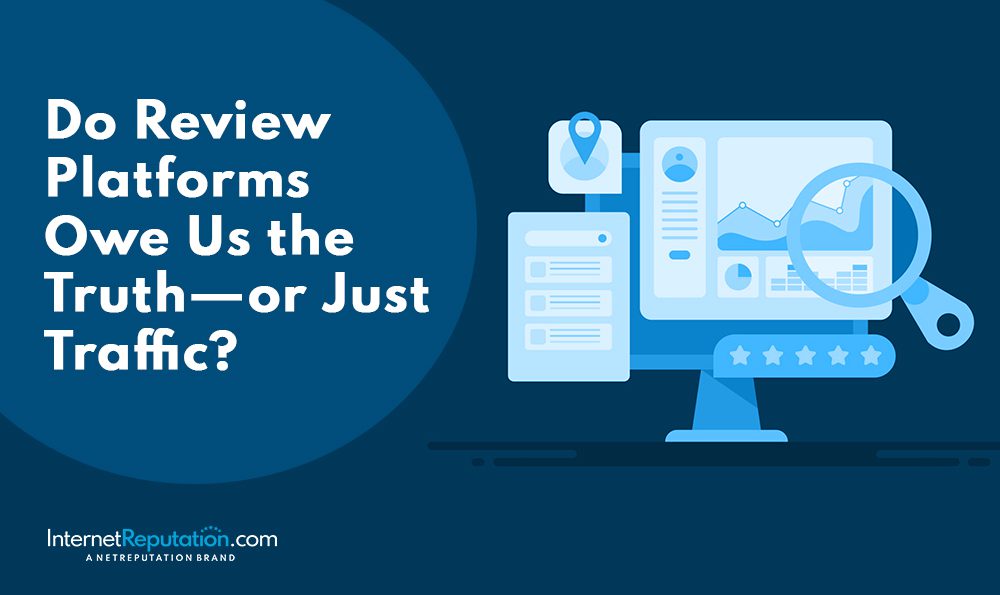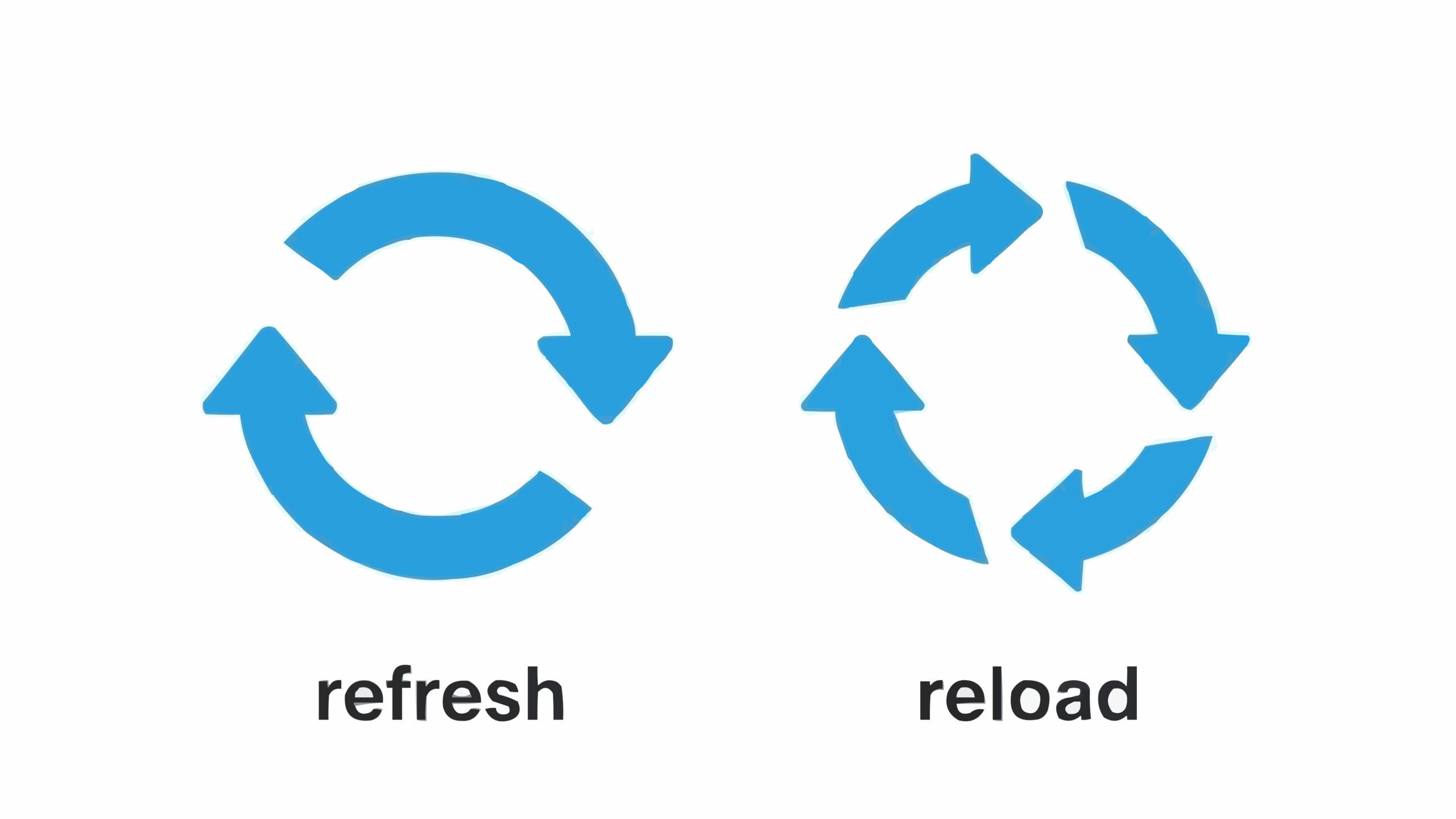Do Review Platforms Owe Us the Truth—or Just Traffic?

Online reviews are no longer a side note—they’re the centerpiece of modern consumer research. Whether someone is looking for a new restaurant, a trusted plumber, or enterprise software, the first instinct is to search, scan ratings, and read reviews. From Google reviews and Yelp reviews to niche sites like Angie’s List and TripAdvisor, the platforms hosting this content wield immense influence.
But not everything in the review ecosystem is as authentic as it appears. Fake reviews, manipulated ratings, and opaque moderation policies are eroding consumer trust and jeopardizing the businesses that rely on customer feedback to thrive.
The Rise (and Risk) of Review Platforms
Review platforms have transformed how businesses attract, retain, and convert customers. Platforms like Google, Facebook, Yelp, and the Better Business Bureau have become trusted intermediaries for millions of consumers, enabling them to make informed decisions.
Local businesses, in particular, rely on positive reviews in online directories and on their Google Business Profile to gain visibility in search results. Reviews don’t just influence perception—they influence rankings, web traffic, and conversions.
But the same tools that build trust can also be exploited. Fake reviews, spam company reviews, and dishonest feedback practices pose a risk to both potential customers and businesses.
How Online Reviews Influence Consumer Behavior
Customer reviews directly impact the buyer’s journey. Before making a purchase, 93% of consumers say they check reviews first. Whether on product pages, a business’s website, or review sites like Google and Yelp, feedback from other users has become a primary form of social proof.
Key behavior drivers:
- A high average rating boosts trust and drives conversions.
- Reading negative reviews can be just as informative as positive ones.
- Seeing reviews on different platforms (Google, Facebook, Better Business Bureau) adds credibility.
- Actionable insights within comments enable users to make more informed choices.
For local businesses, this is especially vital. If your review generation strategy isn’t active—or if your rating is lower than competitors—you risk losing visibility and leads.
The Dark Side: Fake Reviews and Manipulation
Where there is influence, there’s abuse. The rise of fake reviews has become a significant issue across all major review websites. Companies sometimes post reviews about themselves using fake accounts or pay for review generation services to inflate their average rating.
Others manipulate the review process by pressuring unhappy customers not to leave reviews or suppressing negative feedback on their platforms.
Common manipulation tactics include:
- Buying fake 5-star reviews to flood review platforms
- Incentivizing only positive reviews (without disclosure)
- Flagging or deleting valid negative reviews
- Posting fake negative reviews about competitors
These tactics distort the search results that many rely on for honest business information, and they damage consumer trust across the board.
Are Review Platforms Responsible?
Review sites walk a fine line. They want high engagement and fresh content, but they also need to maintain authenticity and comply with FTC guidelines.
Some platforms, such as the Better Business Bureau, require a formal review process and verification. Others, like Google or Facebook, allow anyone to post reviews with minimal screening. This opens the door to abuse, particularly in industries such as home services, hospitality, and retail.
To maintain legitimacy, the best platforms are:
- Using AI to detect review spam and patterns of abuse
- Verifying users or purchases before allowing them to leave reviews
- Making it easier for businesses to manage reviews, report abuse, and respond publicly
- Educating consumers on spotting fake feedback
But the responsibility doesn’t end with platforms.
The Role of Businesses in Managing Reviews
A business can’t afford to ignore its reviews. Your review site presence is often the first impression you make, sometimes even before a user clicks on your website. And how you manage reviews can affect everything from reputation to revenue.
Best practices for companies:
- Claim your Google Business Profile and optimize your business information.
- Respond professionally to all reviews, especially negative ones.
- Collect reviews using ethical methods and tools (no fake testimonials).
- Display customer feedback on your site to build trust.
- Utilize review generation software to facilitate the process of leaving reviews for happy customers.
- Monitor multiple platforms (Yelp, Google, BBB, industry-specific sites) to get a full picture.
Brands in industries such as software, services, and home improvement especially benefit from having positive reviews distributed across multiple platforms.
How Consumers Can Spot Fake Reviews
The burden isn’t only on platforms and businesses. Consumers must learn to read between the lines to protect themselves from deception and misinformation.
Red flags include:
- Overly generic language or repeated phrases across reviews
- A flood of perfect 5-star ratings in a short time
- No verified purchase or vague references to services
- Reviews that focus on emotion but offer little detail
Pro tips for smart review readers:
- Compare feedback across multiple platforms (e.g., Google vs. Yelp vs. BBB)
- Look at both the highest- and lowest-rated reviews
- Trust balanced, detailed reviews that cite specific experiences
What’s Next: The Future of Online Reviews
Online reviews will continue to grow in importance as digital shopping and local search become increasingly prevalent. Platforms that don’t prioritize authenticity may fall out of favor. Regulation is likely to increase, and companies that depend on fake reviews may face legal consequences.
We expect to see:
- AI-driven moderation and fraud detection
- Verified review programs are becoming the standard
- More regulation and FTC enforcement around disclosure and manipulation
- A push for better transparency in the review process
At the same time, businesses that consistently deliver great service and use ethical tools to collect reviews will rise to the top, earning more leads, better rankings, and stronger brand equity.
Final Thoughts
Review platforms are a powerful force in the online economy. They shape reputations, drive web traffic, and influence consumer choices at every stage of the funnel.
But with that power comes responsibility—for platforms to build trustworthy systems, for businesses to collect reviews ethically, and for consumers to read reviews with discernment.
A strong reputation isn’t built on manipulation—it’s built on service, consistency, and trust. If you’re not managing your presence across review sites, you’re leaving your credibility in someone else’s hands.
Make reviews a part of your strategy, not just a reaction. That’s how you turn feedback into growth.


